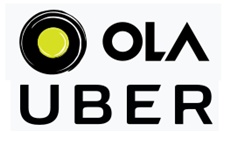SoftBank wants Uber to focus on US, Europe and LatAm: report
20 Jan 2018
Ride-hailing company Uber is likely to pull out of some markets, including in Asia and Africa and focus on its core markets in the US, Europe and Latin America, after Japanese tech giant Softbank acquired 15 per cent stake in the company.
 With SoftBank as the common investor in Uber and its Indian rival Ola and the largedt shareholder in Uber, there is an increased chance of two ride hailing companies merging in India, say reports.
With SoftBank as the common investor in Uber and its Indian rival Ola and the largedt shareholder in Uber, there is an increased chance of two ride hailing companies merging in India, say reports.
Speculation has also been triggered by a comment made by Rajeev Misra, a board member of Softbank, who is about to join the Uber board, that Uber may go slow in India.
A fresh $9.3 billion investment by a consortium led by SoftBank has seen the group's stake in Uber rise to 17.5 per cent.
While Uber is hoping to double its services and expand to more places across the world, SoftBank believes the ride-hailing company has a better chance of making profits if it focuses only on core markets such as the US, Europe, Latin America and Australia, say reports.
Softbank has high stakes in all major ride-hailing companies, including Uber and its Chinese rival Didi and India's Ola and it wants all of them to make money.
While Uber has ceded space to Didi in China, it is facing stiff competition from Ola in the Indian market and SoftBank might want the California-based Uber to focus on its core markets where it doesn't compete with its other investments.
However, with operations in 15 African cities, Uber sees great prospects in its African operations. Uber, which entered Africa in 2013, now operates in eight countries, including South Africa, Kenya, Nigeria, Tanzania, Uganda, Ghana, Egypt, and Morocco.
And despite competition from local rivals like Safaricom's Little Ride in Nairobi and Estonian ride service Taxify (which is partly funded by China's Didi) in most African markets, Uber has made significant gains
Egypt is one of Uber's fastest growing markets globally and in its first 16 months in Lagos, Uber saw a 30 per cent growth in ride services than it did in its first 16 months in London.
In Ghana, Uber is partnering with the transport ministry to develop a regulatory framework for ride-sharing technology essentially ensuring that the company will not face similar regulatory issues it has faced in other markets.
In South Africa, Uber's largest market in the continent, the Uber app has been downloaded more than half a million times.
However, Uber's operations have been opposed in some African countries by taxi unions. Uber has also faced employee revolt with drivers opposing low fares that are not rewarding.
In Lagos, drivers have sued for employee status while some have tried to counter Uber's low fees by employing a fake GPS app to artificially inflate riders' fares.
Uber, meanwhile, has ceded the most valuable title to Beijing-based Didi Chuxing, which, according to analysts, has a valuation of about $56 billion, while Uber is currently valued at $48 billion.




















